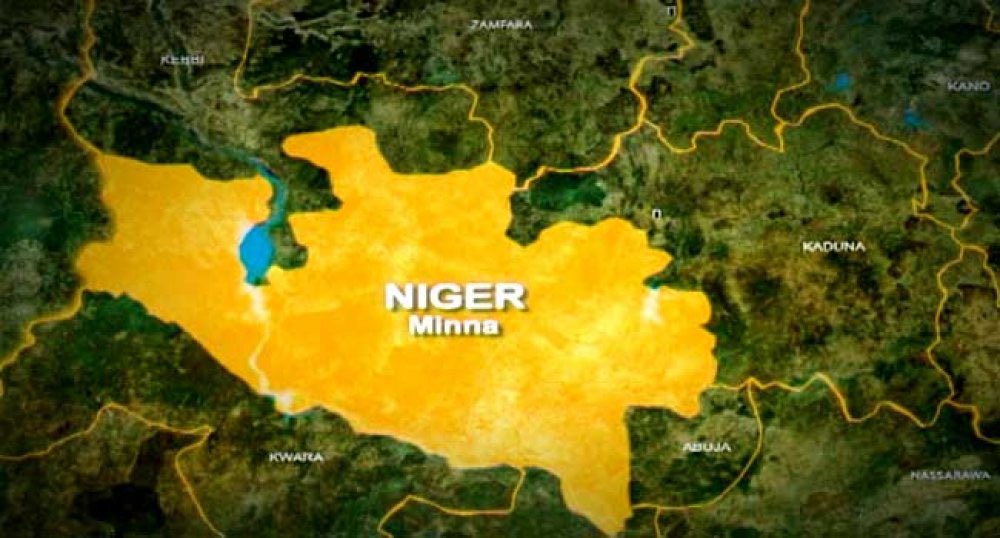
Daniel Otera
The Niger State command of the Nigeria Police Force has confirmed that a woman, identified as Ammaye, was burnt alive by a mob in Kasuwan Garba, a community within Mariga Local Government Area (LGA), Niger State, over an alleged blasphemous comment about Prophet Muhammad. The tragic incident unfolded before security reinforcements could arrive at the scene.
On Saturday, August 30, 2025, at approximately 2:00 PM, Ammaye, a food vendor, was brutally attacked and set on fire by a mob after allegedly making blasphemous remarks during a confrontation with a customer at her food stand. The violence escalated quickly, and despite Ammaye being handed over to security personnel for questioning, a group of angry youths overwhelmed the authorities and carried out the attack before help could arrive.
The Niger State Police Command condemned the act of jungle justice, confirming the incident and assuring the public that efforts were underway to identify and arrest those involved.
The events leading to Ammaye’s death began when the lady had a heated exchange with a young man, reportedly her nephew. The young man jokingly proposed to Ammaye, stating that he wanted to marry her to “fulfill the Sunnah.” This comment was allegedly met with blasphemous remarks from Ammaye, which incited outrage among the youths in the area. The matter was taken to the District Head’s palace, where Ammaye was interrogated and allegedly repeated her controversial remarks.
She was subsequently handed over to security personnel for further investigation, but a crowd of angry youths, demanding immediate justice, surrounded the scene. Before reinforcements could arrive, the mob, composed mainly of young men, stoned Ammaye to death and set her body on fire.
Wasiu Abiodun, the spokesperson for the Niger State Police Command, confirmed the incident in a statement on Sunday. “A report was received that one Ammaye, a female resident of Kasuwan-Garba in Mariga LGA, allegedly made some utterances considered offensive to the Islamic faith. Her comments quickly provoked anger among members of the community,” Abiodun said.
“Unfortunately, it led to a mob attack, and the woman was set ablaze before the reinforcement of security teams could arrive at the scene.” Abiodun emphasized that efforts were underway to identify, arrest, and prosecute all those involved in the crime. He appealed to the public to remain calm, avoid taking the law into their own hands, and allow security agencies to handle sensitive matters in line with the provisions of the law.
Abbas Adamu, the Chairman of Mariga LGA, also confirmed that calm had been restored to the area.
This incident is not an isolated case. Nigeria’s dual legal system includes the Criminal Code, which prohibits “insult to religion” and carries up to two years’ imprisonment, and Sharia penal codes in 12 northern states, including Niger State, where blasphemy can carry the death penalty. These laws, first introduced during the colonial era and later expanded with Sharia in 1999, have been the subject of criticism from international human rights organizations for violating constitutional freedoms of thought, conscience, and expression under Sections 38 and 39 of Nigeria’s 1999 Constitution.
The case also reflects broader concerns about impunity and the prevalence of mob justice in the country. In April 2025, the ECOWAS Community Court of Justice ruled that certain provisions of the blasphemy laws in Kano State violate international human rights standards, particularly the right to freedom of expression. The court ordered Nigeria to amend or repeal such laws.
Blasphemy-related violence in Nigeria has a long and troubling history. In 1999, a Muslim mob in Kebbi State beheaded Abdullahi Umaru for alleged blasphemy against Prophet Muhammad. The 2002 Kaduna riots, triggered by a newspaper article suggesting Muhammad would approve of a Miss World pageant, led to the deaths of over 250 people. In 2006, riots over Danish cartoons of Muhammad resulted in over 100 deaths. More recently, in 2020, a Kano Sharia court sentenced Yahaya Sharif-Aminu to death for a song deemed blasphemous, while 13-year-old Umar Farouq was sentenced to 10 years for insulting God during an argument—both cases were later appealed.
In 2022, atheist Mubarak Bala was sentenced to 24 years for Facebook posts insulting Islam, and Christian student Deborah Samuel Yakubu was stoned and burned alive in Sokoto over a WhatsApp message. In 2023, butcher Usman Buda was lynched in Sokoto for a remark to a beggar. According to Amnesty International, between 2017 and 2024, at least 91 people were victims of mob violence under religious pretexts, mostly Christians or minorities, with the police often failing to prosecute perpetrators, contributing to a culture of impunity.
Mob justice, or “jungle justice,” continues to grow as a problem in Nigeria. Amnesty International has documented 555 victims from 363 incidents between January 2012 and August 2023, including 57 people killed, 32 burned alive, two buried alive, and 23 tortured to death. From 2019 to May 2022, 391 people were killed in 279 incidents, with the southern part of Nigeria recording more deaths (223) than the north (168). However, northern cases often involve religious triggers.
Niger State, part of the North-Central zone, has been particularly affected by this kind of violence, with over 100 incidents documented in the North-West zone between 2012 and 2023. The Observatory for Religious Freedom in Africa reported that over 55,910 deaths occurred due to ethnic and religious violence between October 2019 and September 2023, with Christians being 6.5 times more likely to be killed. These laws and the prevailing culture of impunity fuel extremism and intolerance.
The incident in Mariga highlights the ongoing challenges in Niger State and northern Nigeria, where religious violence has deep historical roots, particularly from the 1804 Sokoto Caliphate jihad. The implementation of Sharia law, combined with sectarian tensions and a failure to hold perpetrators accountable, continues to perpetuate violence in the region.
This incident serves as a stark reminder of the importance of strengthening the rule of law and ensuring justice for victims of mob violence.
